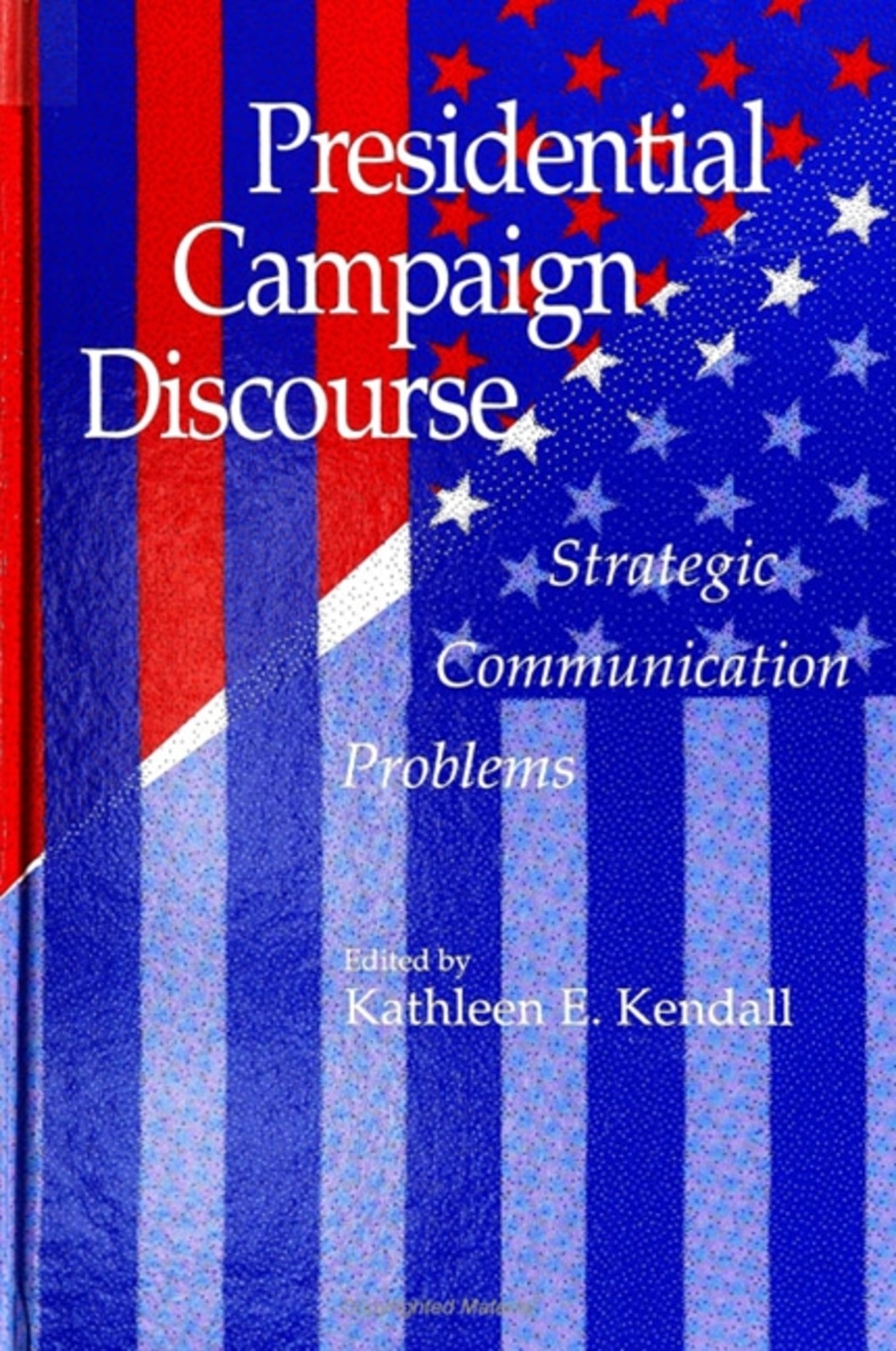We're sorry. An error has occurred
Please cancel or retry.
Presidential Campaign Discourse

Some error occured while loading the Quick View. Please close the Quick View and try reloading the page.
Couldn't load pickup availability
- Format:
-
10 August 1995

Focuses on strategies for solving communication problems in presidential campaigns.
Communication problems faced by presidential candidates in modern elections are examined from a variety of perspectives. The book focuses on the decisions candidates must make about political discourse, such as the speeches, interviews, debates, and ads which make up national campaigns, and the media reporting of these messages. The contributors include Frederick J. Antczak, Sandra Bauman, Paul E. Corcoran, Suzanne M. Daughton, Gail Fairhurst, Richard Gregg, Susan Herbst, Montague Kern, Kathleen E. Kendall, Joshua Meyrowitz, Diana Owen, Marilyn Roberts, Craig A. Smith, Mary E. Stuckey, Jimmie Trent, Judith Trent, and Ron Wendt.


"This fresh and different book brings current approaches in political communication to bear on the most recent election in a way that makes the field of political communication accessable to non-specialized readers. Kendall not only provides a variety of very insightful analyses of the 1992 election that will certainly enhance the understanding of that campaign, but she also provides a theoretical framework for studying presidential campaigns without being pretentious about it." — Craig Allen Smith, The University of North Carolina, Greensboro
Preface
Acknowledgments
1. The Problem of Beginnings in New Hampshire: Control over the Play
Kathleen E. Kendall
2. The Problem of Getting on the Media Agenda: A Case Study in Competing Logics of Campaign Coverage
Joshua Meyrowitz
3. The Incumbent and His Challengers: The Problem of Adapting to Prevailing Conditions
Jimmie D. Trent and Judith S. Trent
4. Looking for "The Vision Thing": The Rhetoric of Leadership in the 1992 Presidential Election
Ronald F. Wendt and Gail T. Fairhurst
5. The Battle of Issues and Images: Establishing Interpretive Dominance
Mary E. Stuckey and Frederick J. Antczak
6. The Debate Challenge: Candidate Strategies in the New Media Age
Diana Owen
7. The Question of a Return to Basic American Values: "My Mother and Winston Churchill" in the Heroic Narratives of Ross Perot's Infomercials
Montague Kern
8. Political Advertising: Strategies for Influence
Marilyn S. Roberts
9. Rhetorical Strategies for a Culture War: Abortion in the 1992 Campaign
Richard B. Gregg
10. Women's Issues, Women's Place: Gender-Related Problems in Presidential Campaigns
Suzanne M. Daughton
11. Managing Perceptions of Public Opinion: Candidates' and Journalists' Reactions to the 1992 Polls
Sandra Bauman and Susan Herbst
12. Presidential Endings: Conceding Defeat
Paul E. Corcoran
13. Conclusions: The Struggle for Interpretive Dominance
Craig Allen Smith
Contributors
Index



